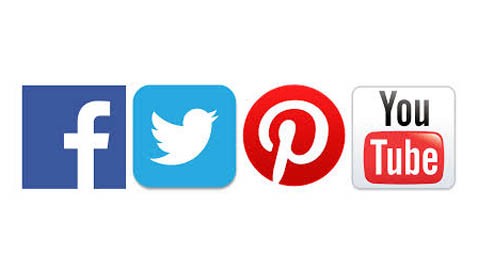

Speech in the digital age makes things faster as well as enormously more complicated. The dissemination of ideas and opinions now takes place at breakneck speed as each person with access to social media becomes a broadcaster. Most of the time this works really well. But it gets complicated when people propagate views defaming a person or accusing a person of having committed blasphemy.
Speech in the digital age has three main actors: the state, the citizen and the corporations that control social media platforms. The state, as ever, has an interest in free speech and its limits. States deal with speech in multiple ways: they prohibit certain kinds of speech (disallowing dissemination of particular information or censorship), ban particular kinds of speech or punish it -- either through imposing fines or jail sentences. In a country like Pakistan we see all of these approaches. Certain information regarding national security cannot be disseminated, similarly certain images have to be censored before they are allowed to be thrown out into the market place of ideas.
Certain kind of speech (such as blasphemy or even defamation) is criminalised while particular speech (Baloch nationalist for instance) is often blocked. Linked to this is the treacherous road of self-censorship; in a country where speech viewed unfavourably by the state or violent non-state actors can lead to violence, self-censorship becomes increasingly common. Thought control becomes a reality and the fear of reprisals ensures that states or non-state actors do not have to go through the inconvenience of putting people in their place.
But one of the many problems with self-censorship is that it does not tell you what the safe-zone from violence is. Once the power to inflict violence without fear of consequence lies with state or non-state actors the boundary keeps shifting. This is particularly evident in the case of alleged blasphemy in Pakistan. While the Pakistani state criminalises blasphemy it also banks on the threat of violence to keep people in a state of fear -- allowing many citizens/non-state actors to use threat or practice of vigilante violence to achieve ends that have nothing to do with religion itself.
The citizen in this situation is thus the victim as well as the oppressor -- the only certainty is that all of us remain vulnerable. Add to this the power to disseminate ideas and allegations at great speed and you know that once you are accused of something as grave as blasphemy in Pakistan, your life is in immediate and constant danger. Now imagine being someone against whom hundreds are tweeting and re-tweeting blasphemy allegations -- regardless of bothering to find out the real facts. What is the solution for the citizen? Blocking twitter or hundreds of accounts is surely not an option in such a situation. This is not a newspaper you can go and get an injunction against citing potential defamation. The damage to reputations on social media happens before you can even think of a coherent response. The only remedy to this is discourse where a critical mass of people pushes back and emphasises the need for reason and logic.
As far as vigilante violence goes, the state is either too weak or too disinterested to prevent that. That problem is not going to go away any time soon till the larger narrative changes.
Corporations like Facebook and Twitter are also an important part of the equation. They now publish annual reports detailing the number of requests they receive from governments to block certain content/accounts or cough up certain information that a government deems relevant to the commission of an (alleged) offence. But how much do we know in Pakistan about what is the standard used by our government before such requests are issued?
The FIA’s National Response Centre for Cyber Crime (NR3C) is the primary government agency that looks into alleged offences committed -- including blasphemy -- in the online sphere. However, it remains unclear how does the FIA have jurisdiction over this area. Law, primarily doesn’t give such power. Yet Facebook routinely honours such requests from the FIA. It appears that Facebook has done woefully little to inquire into FIA’s legal mandate -- hence a citizen is vulnerable because of the actions of the state as well as the lack of due diligence by a giant corporation. Twitter, on the other hand, adopts a better approach in that it will not usually block content upon a government request till it is provided with an order by a judicial forum.
We, the citizens can change this equation for the better by exerting more pressure on the government to be more transparent in how it regulates our online lives, the information available to us and how it handles such information. This will require action from all of us under the right to information as well as necessary litigation if need be. A lot might still go on in the shadows but that is no reason to delay using sunlight as a disinfectant.
While there is a constitutional right of privacy, no legislation has been passed regarding data protection or other protections against invasion of privacy. This means that any privacy related complaints end up before the High Court in writ petitions where courts are reluctant to look into disputed issues of fact or evidence -- this leaves citizens particularly vulnerable.
The right to free speech does not become greater or smaller in the digital age. But the digital age does force us to confront new questions regarding the manifestations of this right and the threat this poses to security of individuals as well as information related to them.